We may earn revenue from the products available on this page and participate in affiliate programs. Learn More ›
Watering Too Often
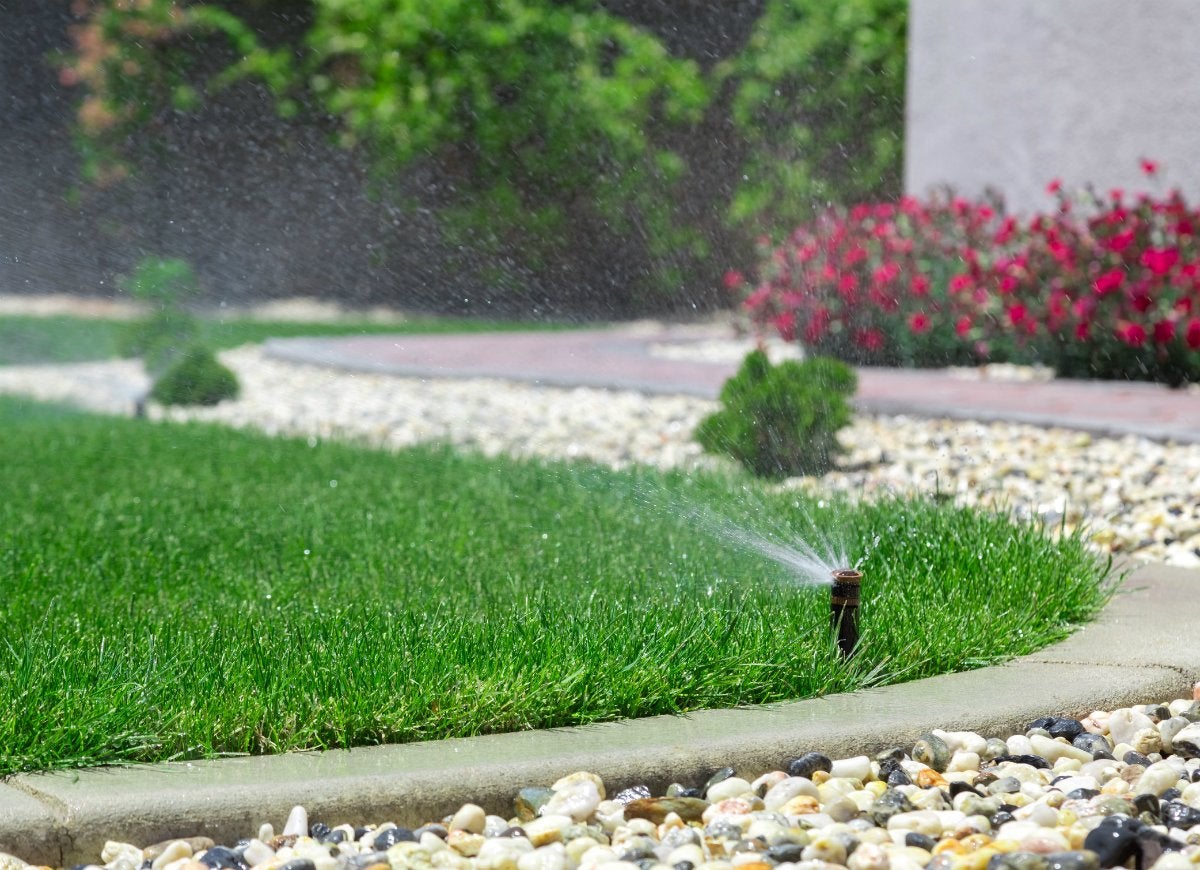
Even in the heat of summer, it’s not a good idea to water your lawn every day. It’s far better to give your grass a deep watering once a week than a little drink daily. Daily watering promotes a shallow root system, which makes your grass more susceptible to disease and insects; less frequent but more intense watering will help your grass establish deep roots that will make it stronger in the long run.
Watering at the Wrong Time
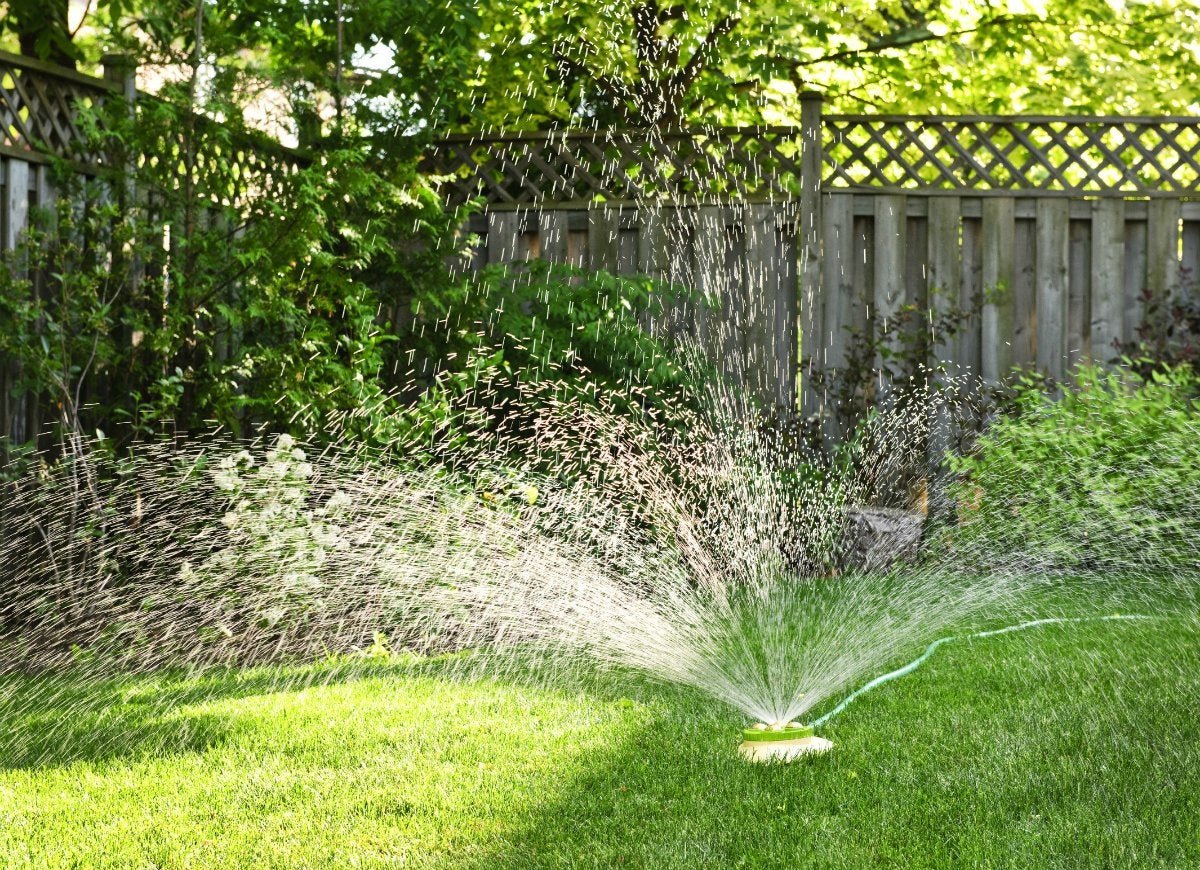
Watering in midday or during evening hours is not good for your grass. You will lose water to wind and evaporation in the afternoon and make your grass susceptible to mildew and fungus at night. It’s best to water in the early morning hours so you can make the most of your water usage and give your lawn the entire day to dry out.
Cutting the Grass Too Short
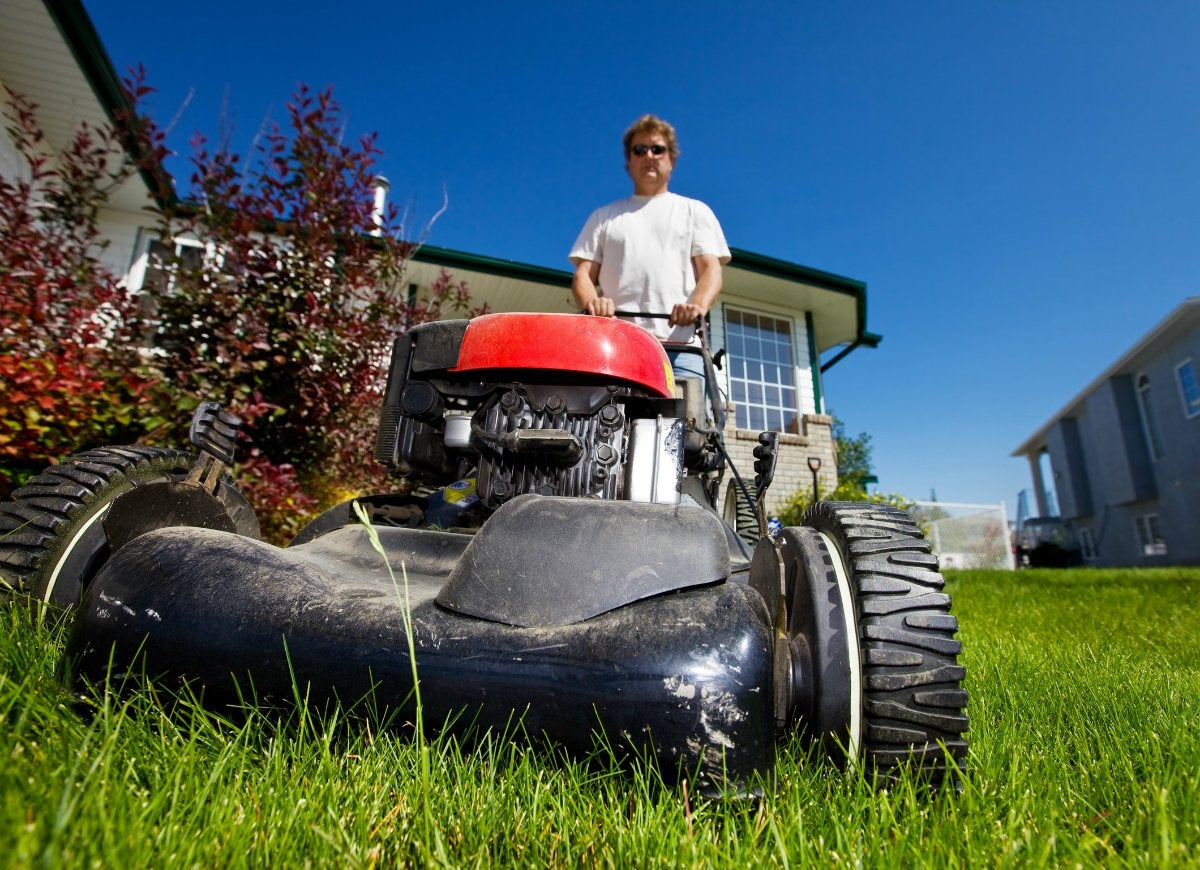
It’s tempting to give the lawn a crew cut so you can go longer between mowings, but resist. Mowing the lawn too short will remove too much of the photosynthesizing grass blades, causing the turf to draw on stored energy in the roots and eventually starve. Aim to cut no more than one-third of the length at any mowing.
Related: 14 Lawn Mowing Mistakes Everyone Makes (and How to Fix Them)
Over Fertilizing
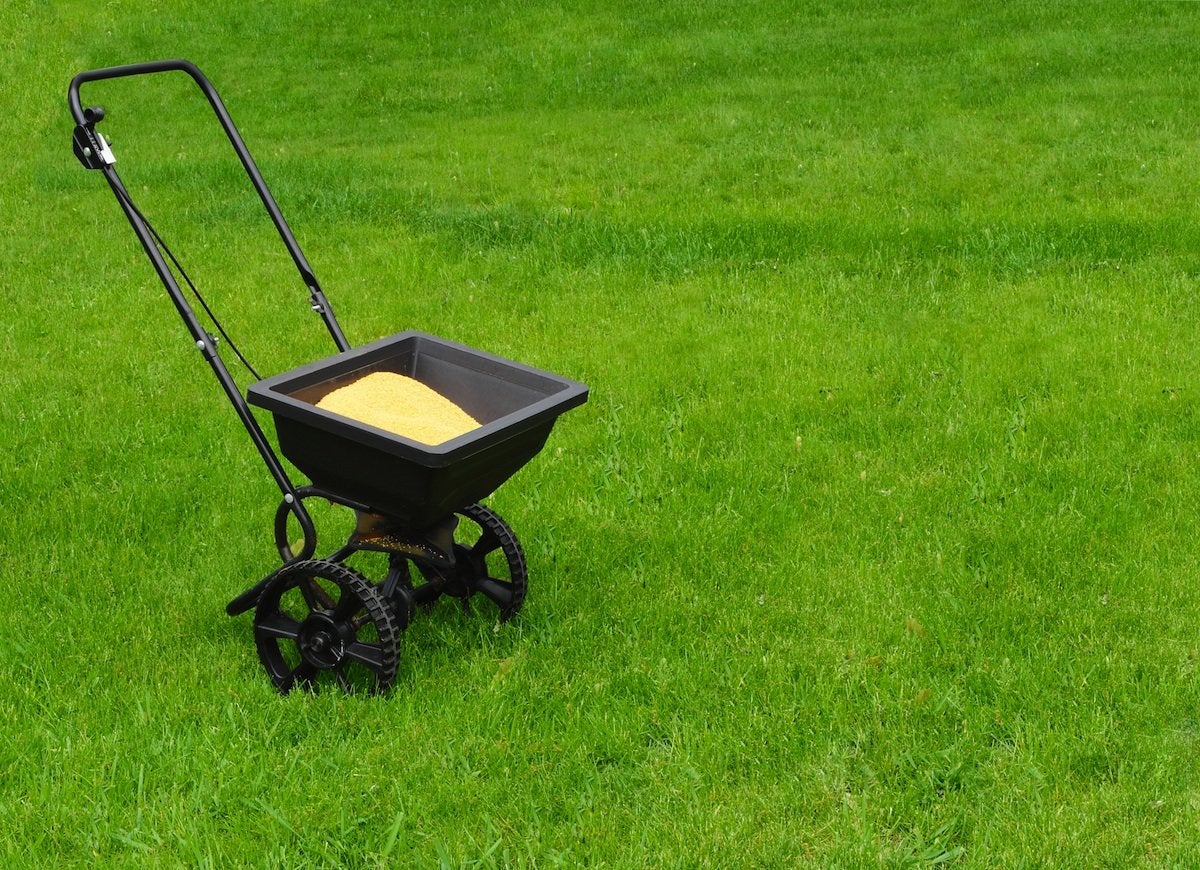
Like any other plant, turf grass needs nutrition. But too much of a good thing can be a bad thing. If you over fertilize your lawn, it will actually burn and turn brown. Always apply fertilizer according to the manufacturer’s instructions.
Overlooking the Soil
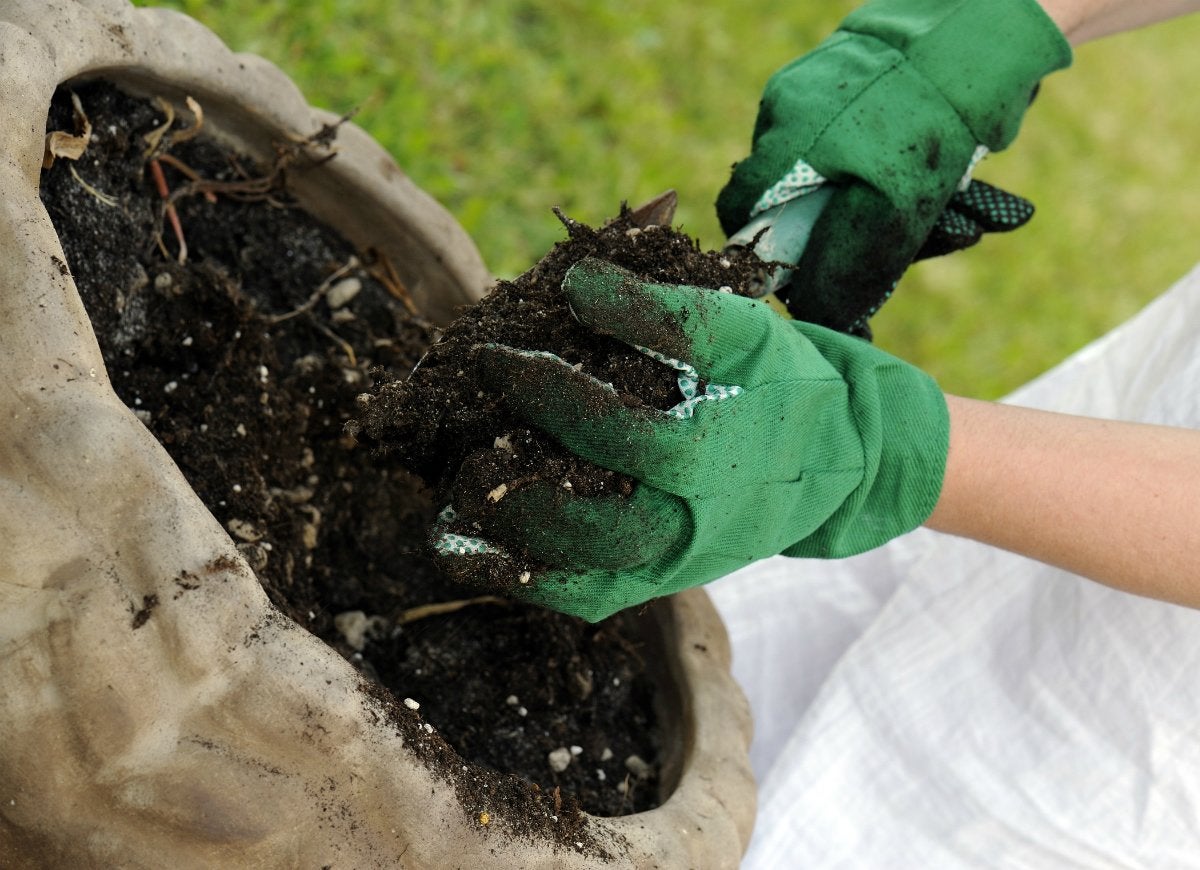
All the fertilizer in the world can’t make up for poor soil. There’s an entire ecosystem below the roots of your turf grass, and if it’s out of balance, you’re going to be plagued with problems. Do yourself a favor and test your soil before doing anything significant with regard to lawn care. Having this key information will help you determine what direction to take.
Related: You Might Mistake Our Favorite Artificial Grass for the Real Thing
Leaving Gear on the Grass
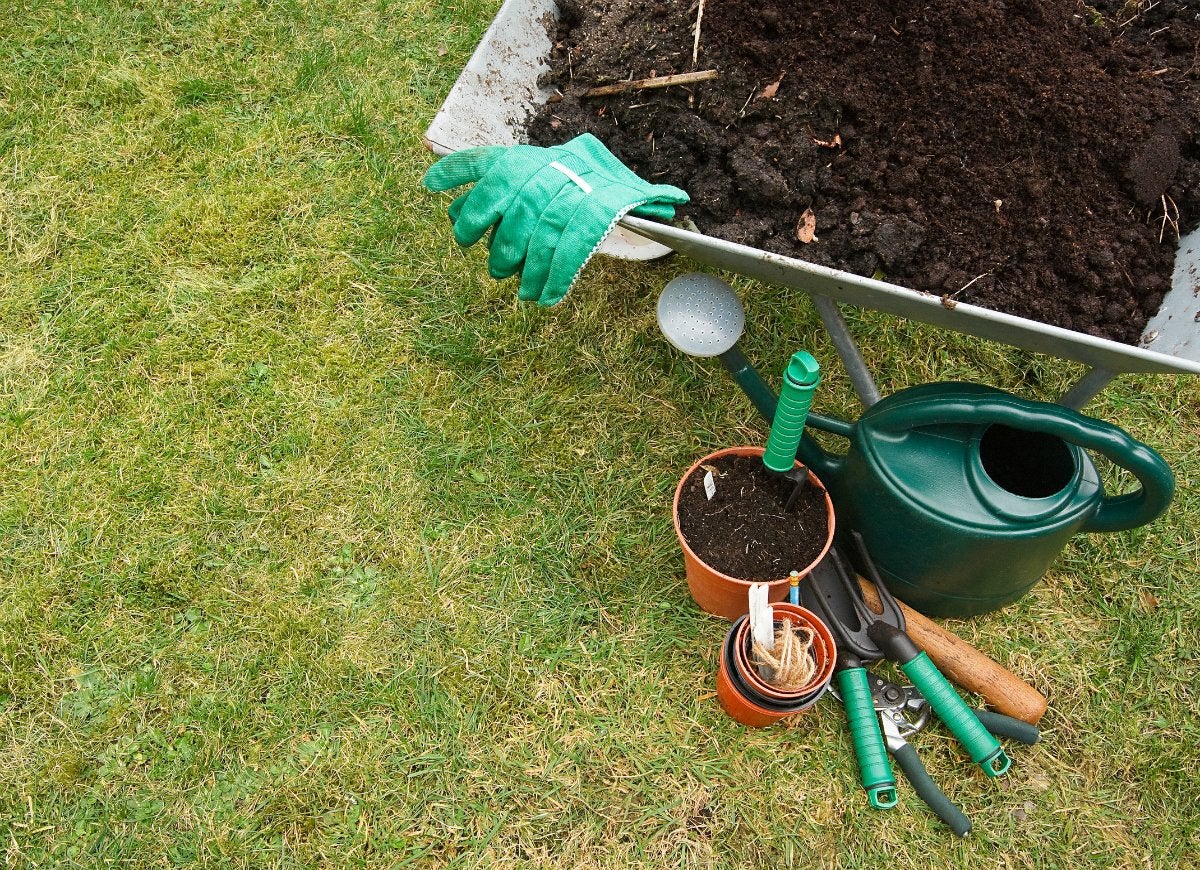
Make an effort to clear the clutter on your lawn at the end of each day. Kiddie pools, chairs, and toys left out in the yard will compact the soil and damage the grass. Not only will tidying up benefit the lawn, you’ll also love the look of a supremely organized yard.
Related: 7 Things to Do in Spring for a Healthy, Gorgeous Lawn Year-Round
Mowing with Dull Blades
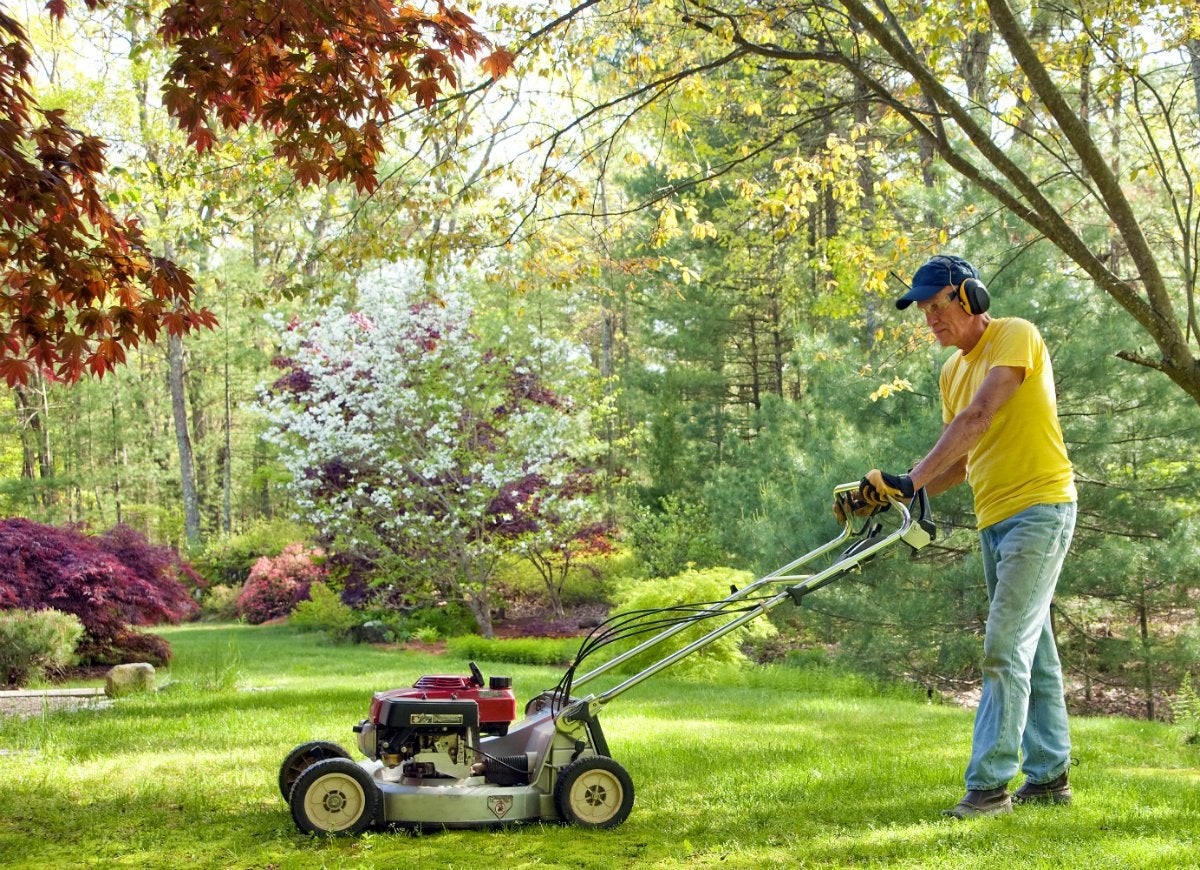
Dull mower blades will rip off the ends of your grass instead of cleanly cutting them. Why is this a problem? This improper cut will cause moisture to wick up and be expelled from those frayed ends, creating a place for pathogens to enter your turf, dry out your grass, and expose it to disease. Sharp mower blades are key to avoiding these unwanted results.
Related: Lawn Mower Maintenance and Repair Tips: Our Best Advice
Eliminating Insects and Spiders
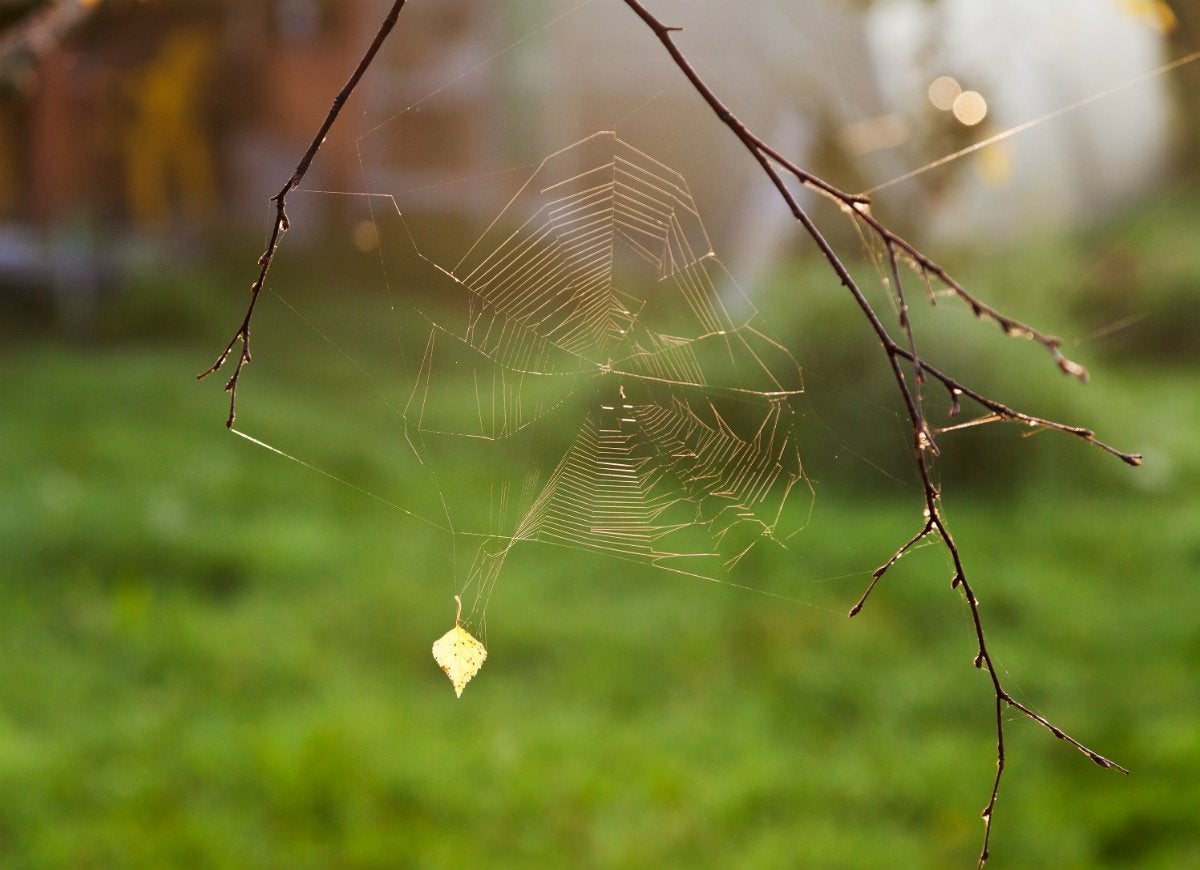
It’s true that insects like mosquitoes and gnats can ruin a good time in the yard. But there are a lot of very beneficial bugs and spiders as well. Don’t jump too quickly to spray insecticide when you see creepy-crawlies in your garden, as they might be doing you a favor. Ladybugs, after all, will voraciously attack aphids, and those buzzing bees are pollinating your plants and flowers. Most spiders are completely harmless and prey on much more pesky insects. So, avoid getting rid of these beneficial bugs, or search for solutions that target specific uninvited guests.
Related: 20 Tips for Keeping All Critters Out of Your Yard and Garden
Dedicating One Area to the Dog

If you establish one area of your lawn as a dog run, don’t expect any grass to grow there. The salts in canine urine can leave dead brown spots in the grass, and the extra heavy traffic of scratching nails will tear up turf. You’ll be better off letting your dogs have the run of the yard, or creating a separate mulched area for them to run around in and do their business.
Ignoring Weeds
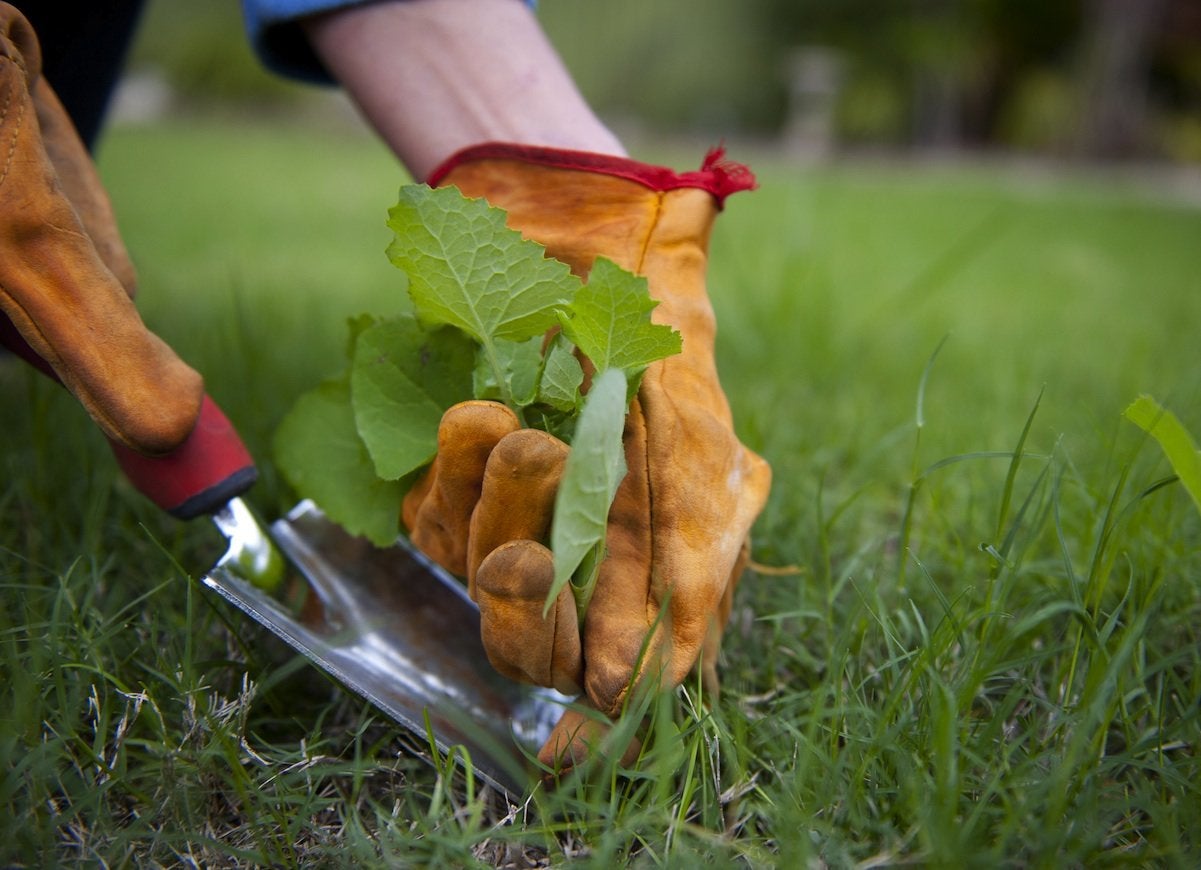
Weeds are something every homeowner has to deal with, and it can be hard to know what’s best—to pull them or to apply herbicide. Whatever you do, don’t ignore them. A single dandelion head can produce between 40 and 100 seeds! Get rid of weeds early, before they can propagate. Otherwise, you’ll deeply regret the work you’ll have in store after they’ve taken over your lawn.
Related: Keep, Don’t Kill: 9 Weeds to Welcome
Mowing While Wet
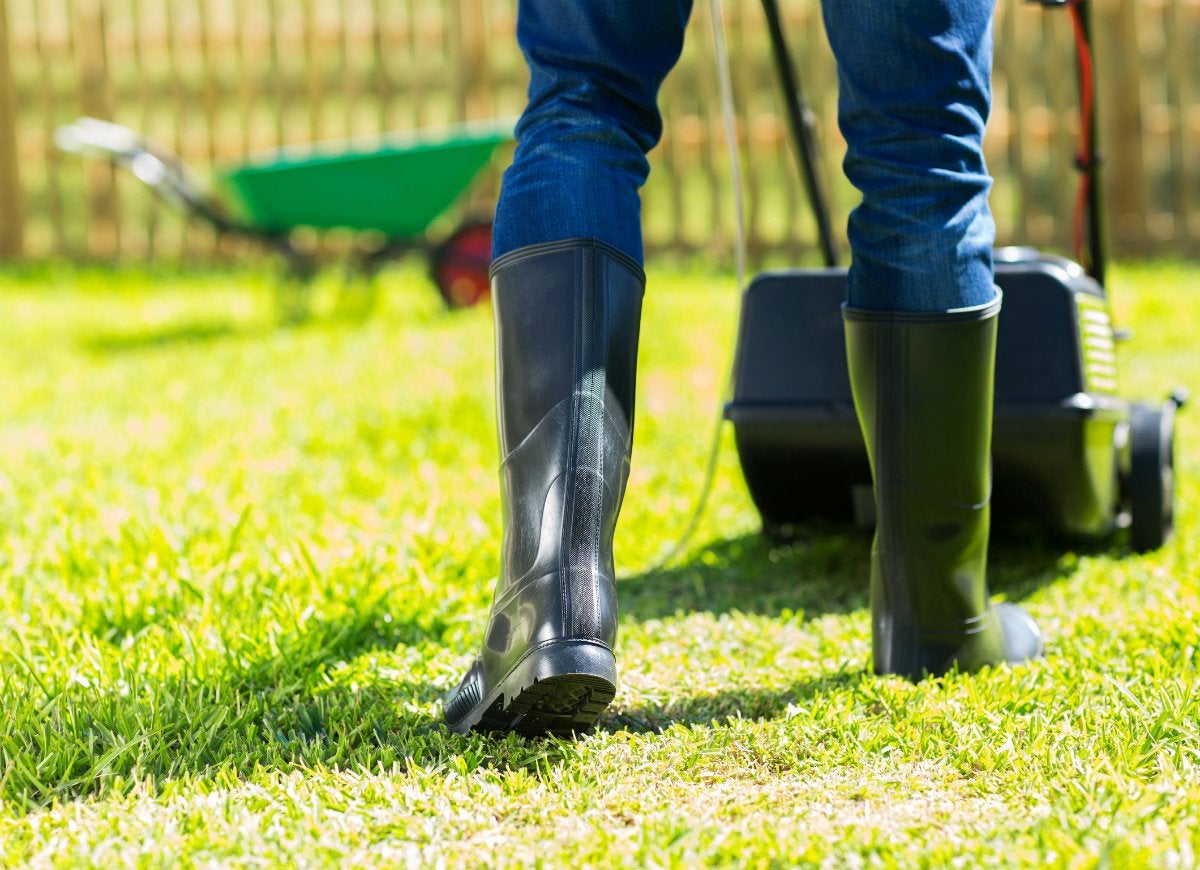
Mowing the lawn when it’s wet will not only damage the turf, but also cause the clippings to clump, which can spread diseases and weeds throughout the yard. Wait until your lawn has dried out before giving it a chop to avoid these unwanted problems.
Lush Lawn
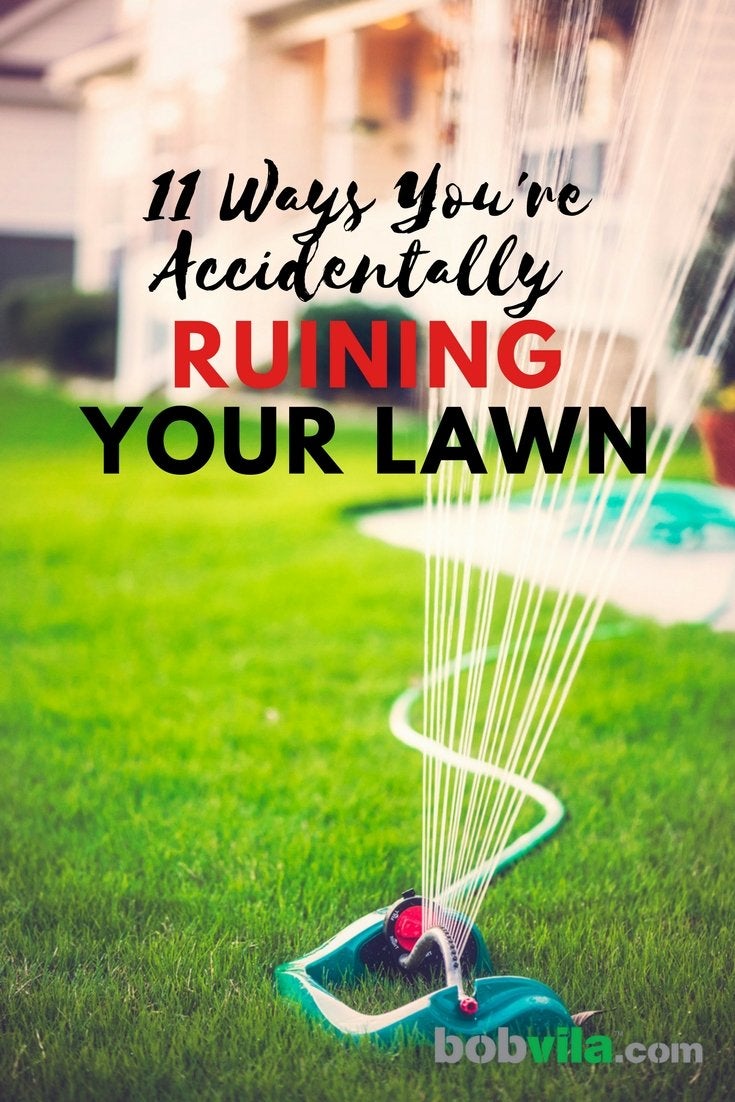
Your lackluster lawn might be the result of you making one—or more—of these mistakes. Luckily, a few easy changes can get your yard looking good.

Everything You Need for a Lush and Healthy Lawn
Keeping your grass green and your plants thriving doesn’t just take a green thumb—it starts with the right tools and supplies.
